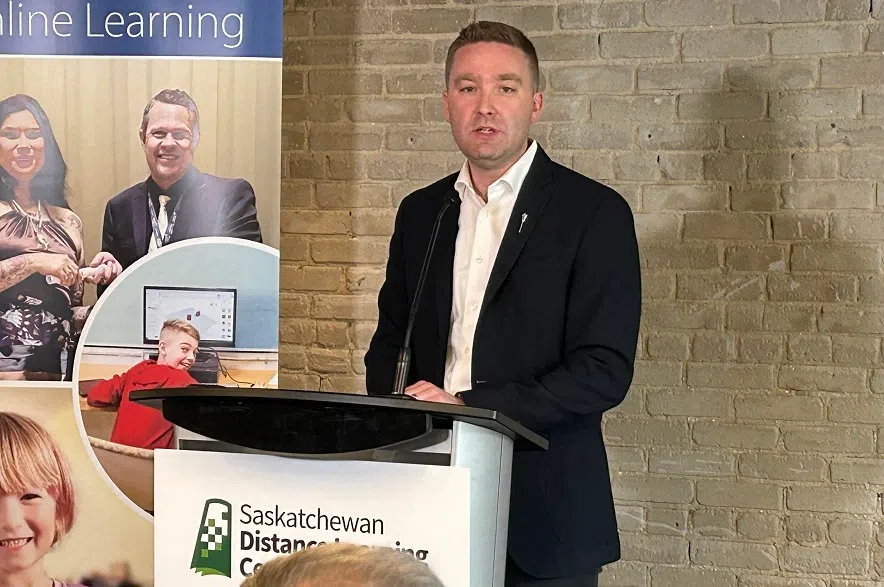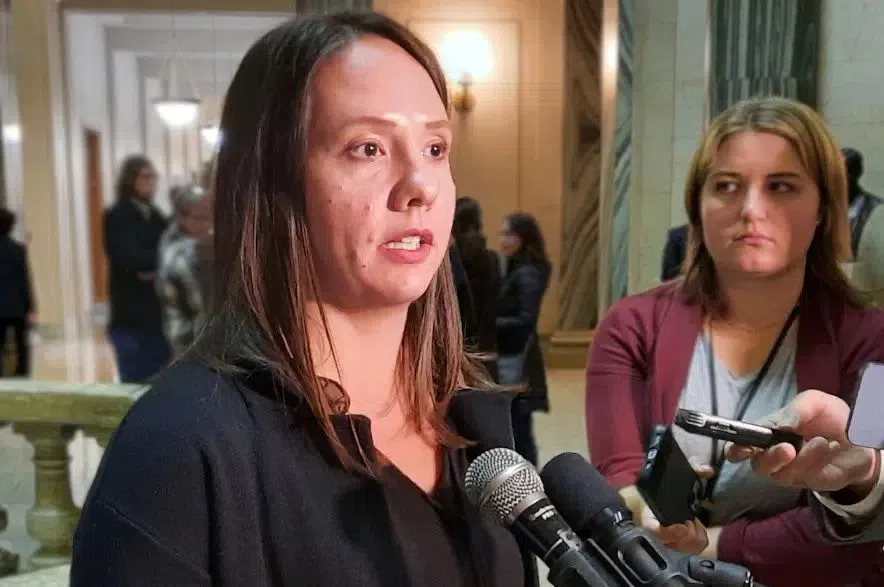The Saskatchewan government decided to end the week with the good news that bargaining will soon resume with teachers.
A week after the Saskatchewan Teachers’ Federation (STF) announced it was implementing work-to-rule sanctions for the foreseeable future, news broke that the two sides will return to the bargaining table early next week to hopefully hammer out a deal.
The sanctions will be suspended in the meantime.
Premier Scott Moe weighed in on the progress being made between both the teachers and province.
“Our school division boards – the people who are elected to make the decisions about how our schools are ran – have said that management rights and their ability to administer the schools within their divisions cannot be bargained away in the contract. That’s a reasonable position to take,” Moe explained in a video posted to social media.
“The Saskatchewan Teachers’ Federation is now asking that government and school boards make a commitment to honour the accountability framework within the contract. That’s also a reasonable position to take and our government is prepared to see this language included in the contract.”
Moe added he’s hopeful that by coming to this compromise, both sides can form the basis for a new agreement that works for both sides and ensures kids in this province can get the best possible education.
Jeremy Cockrill, Saskatchewan’s education minister, said he’s feeling very positive about the latest developments.
“As it stands right now, I am very optimistic that we have a good path to the bargaining table next week,” Cockrill said. “We have been engaged in conversation with the STF about what that path to the bargaining table for them looks like. We look forward to that.”
Last week, STF president Samantha Becotte said the union was seeking clarification on some of the language in a memorandum of understanding offered by the province, which was intended to meet the federation’s request that increased funding to address issues around class size and classroom complexity be included in the contract.
Cockrill wouldn’t specify what language was changed, but said it’s been enough to get the two sides talking again.
“What we’ve been working on the last several days is some specific language around the accountability framework. There’s been ups and downs throughout the last several months, but I’m really optimistic though,’” he stated.
“We’re closer than we think. There’s more that we agree on than we disagree on. Everyone wants to come to an agreement that’s going to work for teachers, but as well as taxpayers, parents and families.”
Cockrill added that this is the most optimistic he’s felt during negotiations.
“Over the last several months as minister I’ve been working with my team and government to make significant investments in education,” he explained.
“These are significant pieces that are going to further support school divisions. I’m hopeful we can get a deal done.”
While Cockrill said stipulations on classroom size and complexity will not be included in the contract, he said the province is willing to include more wording around teachers’ voices and what happens in their divisions and schools.
He reiterated that he wants the STF, school boards and the province rowing in the same direction and working together to ensure education improves in the province.
STF president shares optimism as negotiations set to resume
As talks move forward, it means the end of the work-to-rule action, at least temporarily.
Becotte said she knows relationships have been strained, but said she’s feeling encouraged and optimistic about next week’s meeting with the provincial bargaining committee.
“I’m hopeful that this is a step in the right direction, that we can continue on this good work and in the end it’s only going to benefit our students that we’re here to serve and we’re here to support,” she said.
Becotte acknowledged that both parents and students have faced a variety of school-related disruptions in recent months, but added that the sanctions were a means to an end for everyone, and she thanked everyone for their patience.
“We recognize the challenges it creates. We recognize the frustration that comes out of it, but through that, by and large, I still hear parents and families and members of the public saying these issues need to be addressed,” she said.
Becotte added that she’s appreciated the latest exchanges with the province on the language in the memorandum of understanding and in the collective agreement.
“We have seen a willingness to ensure that there is language that provides those guarantees and provides better assurances around supporting students in our classrooms and around accountability,” she said.
Becotte said she hopes the negotiations continue until an agreement is reached, even if it means 12-hour days for the bargaining committees.
The talks are to resume Tuesday.
– With files from 650 CKOM’s Lara Fominoff












